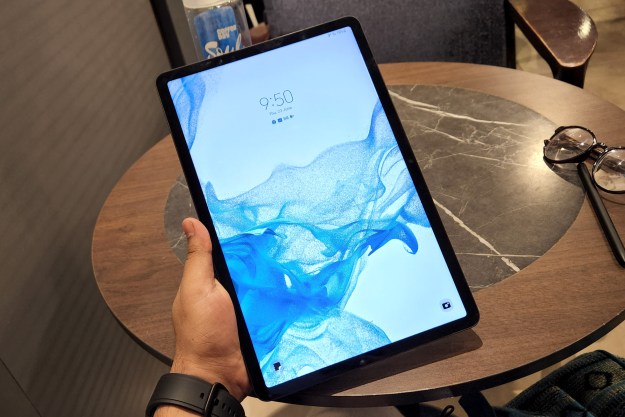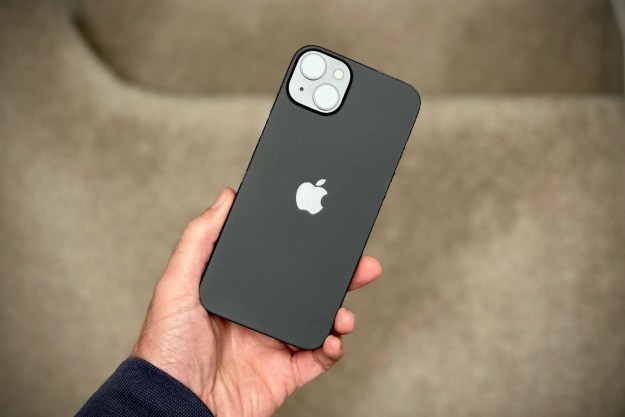Wordle has become an international hit with people of all ages. Each day, there’s a new five-letter word to guess — some people get it in three guesses, others in the maximum of six. The game, which was recently acquired by The New York Times, is so popular that people have created chat groups with friends and family to share their results. It’s a fun brainteaser, and no one loves brainteasers more than seniors. And this embrace of technology can help save lives.
Last month, a Seattle woman became worried about the well-being of her mother, 80-year-old Illinois resident Denyse Holt, after she didn’t text her daily Wordle score to her. The daughter and her friends called her mother’s local police department from across the country, and officers went over to Holt’s house to discover that she was being held hostage by a naked man. This daily ritual of playing Wordle with her geographically distant family may have kept Holt alive.
Seniors are using smart tech and social media more than ever

A January 2022 study from Pew Research Group shows that 61% of seniors age 65 and older owned a smartphone in 2021 compared to 96% of adults younger than 30 — a gap that has decreased by 53 points from a decade ago. The study also revealed that 75% of adults in the 65-plus age group use the internet, yet only 45% of them use social media. Even so, the advent of smartphones and social media has increased technology use among seniors fourfold since 2000. Although seniors value face-to-face communication, they have grown to adopt the iPhone, Samsung Galaxy S, and pretty much every other smartphone they could get their hands on in order to maintain contact with their families through text messaging and social media outlets such as Facebook.
Ed Evans, CEO of Consumer Cellular, understands this phenomenon all too well. He knows it’s important for people to keep in regular contact with their aging parents and grandparents, but he also realizes that some seniors push back against the use of technology that may act as monitoring tools for their adult children and caretakers. However, many of them have grown used to touchscreen smartphones and tablets as a means of communicating and playing games with their families, especially Wordle.
“I think the Wordle piece is a great example that gaming is really big with the senior cohort today. They use the tablets and iPads and GrandPads and other devices that are out there, and play games and share those results,” Evans said. “And as they share those, they tend to establish patterns that indicate that things are OK. They’re playing the game or they’re Zooming with us or texting to us — these are all things that indicate to us that things are kind of status quo and we don’t need to worry about them. But when there’s a break in that pattern, it’s great to have a sort of way to reach out and understand, ‘OK, something’s going on. What is it?’ at that point.”
How smart tech protects seniors

While it’s great that seniors have adopted the technology necessary to maintain contact with their family and friends, there need to be safeguards that can prevent them from falling prey to scammers as they are making video calls and playing video games. One such device that offers those safeguards is the GrandPad, which Consumer Cellular has been a distributor of since 2018.
Dubbed the Android tablet for seniors, the GrandPad is the only tablet that cannot be purchased outright. It can only be obtained through a subscription that costs $40 a month. Instead of being connected to the open internet like other devices, the GrandPad is connected to a private network of trusted friends and family chosen to have access to the device. It’s managed by a family administrator, preferably the person who bought the GrandPad, in order to protect the senior from spam and other unwanted activity, such as phishing scams. In other words, it acts as what Evans calls “the walled garden.”
“It’s all protected so that the only way someone can get a text message or a telephone call or an email onto that device is if that particular phone number, email, or text telephone number has been added to a safe list,” he said. “So they know that when they get a message on that device that it’s a safe device, it’s not someone trying to scam them.”
The Care Smart watch from Verizon offers the same safety net. Released during the early stages of the COVID-19 pandemic in April 2020, this smartwatch allows caregivers to add up to 10 trusted contacts, including one emergency contact, through the Verizon Care Smart App for their elderly loved one to call. It also shares the wearer’s location with caregivers and has a one-touch SOS button in case the senior has an accident or needs help.
“This device helps seniors stay connected and puts family members’ minds at ease,” Alex Lawson, communications manager at Verizon, said. “Using the Care Smart app, caregivers can add up to 10 trusted contacts, as well as manage useful things like medication reminders and location alerts. A large, easy-to-read display, simple navigation, and preset text replies make Care Smart a trusted, everyday companion that seniors and caregivers can rely on.”
Gaming keeps seniors mentally active while connecting with others

Remember what Evans said about gaming being popular among seniors today? Playing video games not only helps seniors stay connected with their family and friends, but also helps keep their minds sharp.
A 2019 study from AARP found that 44% of adults older than 50 played video games at least once a month — about five hours a week on average — compared to 38% in 2016. And they’re not just playing games on consoles like PlayStation and Xbox. About 73% of the seniors surveyed play games on smartphones and tablets, while 47% play games on their PC.
You might picture seniors playing games like Fortnite or Skyrim based on 85-year-old Shirley Curry, who has garnered nearly a million subscribers on YouTube, earning the nickname Skyrim Grandma. The truth is, most of them lean toward logic and puzzle games that contain social elements, hence the Wordle phenomenon. Studies have also shown that seniors who play games have more gray matter, which decreases with aging, than those who don’t.
A 2017 study randomly tasked 33 people between the ages of 55 and 75 to either play Super Mario 64 or learn to play the piano — or do no neither task — for 30 minutes a day over six months. Gregory West, an associate professor of psychology at the University of Montreal and co-author of the study, said brain MRIs done after the study found that those who played Super Mario 64 had an increase in gray matter in the hippocampus, which affects spatial and episodic memory, and the cerebellum, which deals with motor control and balance.
No matter what kind of games seniors play, they mostly play them to compete with their friends and family, especially their children and grandchildren who introduced them to those games in the first place. And gaming is a great way for those family members to check up on their loved ones and keep them active during their golden years.



